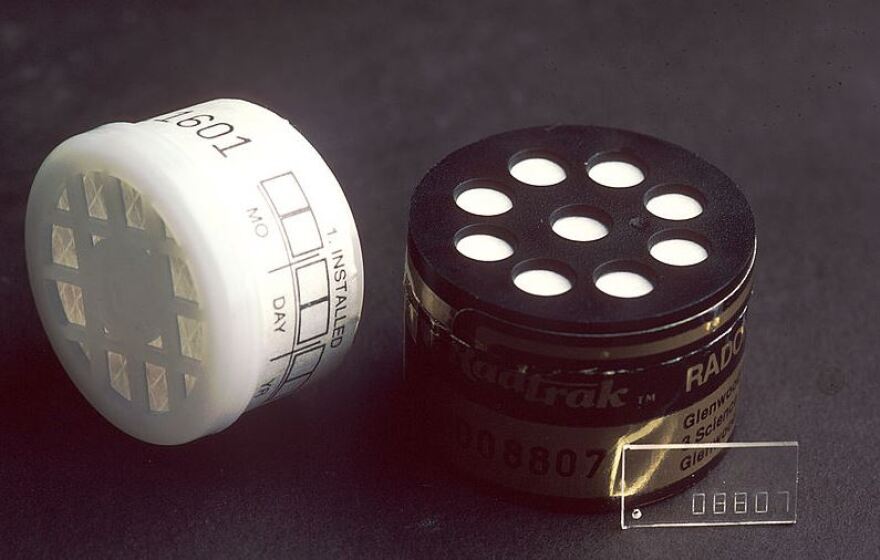Only one of the fastest growing counties in Colorado requires new homes to be built with a system to mitigate a cancer causing gas.
“Surprisingly the entire state of Colorado is what we call red zone for radon. Typically statewide about 50 percent of homes test above the [Environmental Protection Agency] action level of 4 picocuries per liter, so we’re pretty high risk all around the state,” said Colorado radon program manager Chrystine Kelley.
Health officials estimate that about 500 Coloradans die every year from radon induced lung cancer.
Radon is a naturally occurring radioactive gas that is the leading cause of lung cancer for nonsmokers and the second cause of cancer in smokers. The colorless, odorless, tasteless gas can enter homes through tiny cracks in the floor or small spaces around utility pipes and accumulates unless properly mitigated.
“It doesn’t have anything to do with the size of the house or the age of the home, it has to do with how much uranium is under the soils under the house, that’s where the radon comes from. So we recommend everyone tests,” Kelley said.

There are no state laws requiring a radon test, and it’s not included in a standard house inspection. Boulder had the 10th highest number of building permits in 2014 statewide, and is the only county along the booming Front Range that requires new homes be built with what Kelley calls “radon resistant construction.”

“We’re rapidly expanding that around the state,” she said.“We have several very proactive builders who build every house with a radon system in it from the get go. If you’re having a home built you should check with your builder to see if it’s an option.”
Fort Collins, Longmont and Lakewood are among 25 other municipalities and counties that require new homes to be built to mitigate the gas, which includes venting it out of the house. Fort Collins is the only city in the state that requires radon resistant new construction on multifamily properties, like apartment buildings or elderly care facilities.
But if the home already exists, then it’s up to the savvy buyerto test.
“Normally what happens when somebody’s buying a home they should ask their home inspector to test the home,” Kelley said. “That’s their one opportunity to get the seller to pay for a mitigation system if it’s needed.”
But with a highly competitive market, few buyers are willing to alienate themselves by asking for a mitigation system — costing upward of $1,000 — even if it’s needed.
Low cost test kits are available on the state’s website and in some counties. According to Kelley, winter is the best time to test for radon because houses are closed up.
“Our homes shift and foundations crack, so radon levels can go up. Even if your home has been mitigated you should check every few years.”






